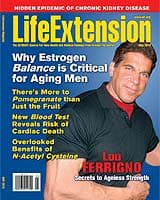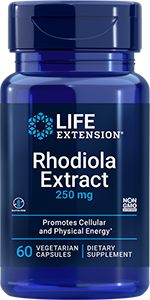 | May 7, 2010 | Broccoli compound targets breast cancer stem cells | | In research conducted at the University of Michigan, a compound known as sulforaphane, found in broccoli and broccoli sprouts, was demonstrated to target cancer stem cells in cell cultures and in mice. Cancer stem cells, which are not destroyed by chemotherapy, are believed to be involved in the ability of breast cancer to recur, grow and spread. "The existence of cancer stem cells (CSCs) in breast cancer has profound implications for cancer prevention," the authors note in their introductory remarks to their article, published in the May 1, 2010 issue of Clinical Cancer Research. University of Michigan Comprehensive Cancer Center researcher Duxin Sun, PhD and colleagues injected varying concentrations of sulforaphane derived from broccoli extract into mice implanted with breast cancer tumors. The concentrations of sulforaphane tested were higher than those provided by normal consumption of broccoli or its sprouts. Examination of the animals' tumors uncovered a substantial reduction in cancer stem cells, while normal cells did not appear to be significantly affected. Additionally, cancer cells derived from animals that received sulforaphane that were reimplanted into other mice failed to form tumors. Tests in cultured human breast cancer cells showed a similar reduction in cancer stem cells. “Sulforaphane has been studied previously for its effects on cancer, but this study shows that its benefit is in inhibiting the breast cancer stem cells," stated Dr Sun, who is also an associate professor of pharmaceutical sciences at the University of Michigan College of Pharmacy. "This new insight suggests the potential of sulforaphane or broccoli extract to prevent or treat cancer by targeting the critical cancer stem cells.” “This research suggests a potential new treatment that could be combined with other compounds to target breast cancer stem cells," commented coauthor and Distinguished Professor of Oncology Max S. Wicha, MD, who directs the U-M Comprehensive Cancer Center. "Developing treatments that effectively target the cancer stem cell population is essential for improving outcomes." | |  |  | | Despite the huge strides in scientific research, there are still many unanswered questions regarding cancer's growth and development. What we do know is that there is overwhelming research supporting an integrated approach to the treatment of cancer. Please read the entire protocol before considering this regimen because there are certain cautions to consider. As always, consult your physician before beginning any nutritional supplementation regimen. 1. Cruciferous vegetable extract, 1-2 capsules per day.
2. Curcumin, four 900 mg capsules, 3 times daily on an empty stomach for a total of 10.8 g per day. Note the caution earlier in this protocol.
3. Lightly caffeinated green tea extract, three 725 mg capsules, two times a day with meals. Use decaffeinated green tea extract if you are sensitive to caffeine or want to use a less-stimulating version with the evening dosage.
4. CLA or CLA with guarana, 3000 to 4000 mg daily of CLA and about 300 mg of guarana, early in the day.
5. Melatonin, 3 to 50 mg at bedtime.
6. Powders (broccoli, cabbage, and other cruciferous vegetables that provide sulforaphane and other cancer-fighting plant extracts), 1-2 tbsp daily.
7. Se-methylselenocysteine, 200 to 400 mcg daily.
8. CoQ10, three 100 mg softgels in divided doses. Note the caution stated in this protocol.
9. EPA/DHA with Sesame Lignans, 8 softgels daily, in divided doses. Take with nonfiber meals.
10. Vitamin D3, 4000 to 6000 IU taken daily with monthly blood testing to monitor for toxicity. Reduce dosage at 6 months.
11. Water-soluble vitamin A, 100,000 to 300,000 IU daily with monthly blood testing to monitor for toxicity. Reduce dosage at 6 months.
12. Vitamin E succinate (tocopheryl succinate), 1200 IU daily.
13. Gamma tocopherol, 1 capsule daily.
14. Vitamin C, 4000 to 12,000 mg throughout the day.
15. Gamma linolenic acid, 4 capsules of Mega GLA w/Sesame Lignans.
16. Whey protein concentrate-isolate, 30 to 60 grams daily in divided doses.
17. Calcium, magnesium, and bone-protecting nutrients. Take 5 capsules at bedtime.
18. Vitamin K, 10 mg daily.
19. Silicon, 6 mg daily.
20. Multinutrient formula, daily.
https://www.lifeextension.com/protocols/cancer/breast-cancer | Life Extension Magazine® May, 2010 issue now online 
- On the cover:
- Reports:
- Departments:
| |  |   | | The Russian herb Rhodiola (Rhodiola rosea) has demonstrated a remarkable ability to support cellular energy metabolism. Rhodiola promotes higher levels of ATP (adenosine triphosphate) and CP (creatine phosphate) in the cellular power plants known as the mitochondria, thus providing more of the energy molecules needed to perform many daily activities. In a human clinical trial, rhodiola aided exercise endurance after just a single dose. In another double-blind crossover human trial, rhodiola increased several measures of mental performance, including associative thinking, short-term memory, concentration, calculation and speed of audiovisual perception. Statistically significant improvements were reported after just two weeks of supplementation. A more recent human trial also documented Rhodiola rosea significantly improves physical and cognitive deficiencies. Unlike other Rhodiola supplements on the market today, Rhodiola Extract uses only the authentic Rhodiola rosea species and is standardized to contain the proven 3:1 ratio of 3% rosavins and 1% salidrosides, matching the concentrations of active adaptogens used in clinical trials. | | |   | | Life Extension® introduces the world’s first oral supplement to help maintain youthful skin by protecting against harmful solar radiation. For the first time you can achieve essential protection from sun exposure in a pill. This product has been upgraded to contain Sendara™, a patented blend of the herbs ashwagandha and Indian gooseberry. Ashwagandha has been used by Ayurvedic practitioners in its native India for thousands of years. It is rich in flavonoids and steroidal lactones called withanolides, which are thought to have a number of beneficial properties. Ashwagandha works as an adaptogen to enhance the body's ability to respond to stress, which is thought to be a major contributor to physical signs of aging and that can exacerbate or trigger certain skin conditions. This adaptogen specifically targets excess cortisol release triggered by stress. Indian gooseberry is an antioxidant that helps prevent oxidative stress and degradation of skin proteins and may enhance the firmness of skin. | | | |  | | Life Extension Update | | What's Hot | | Life Extension Magazine® | |

